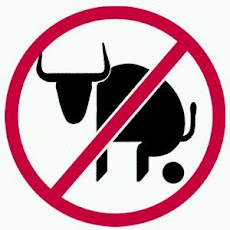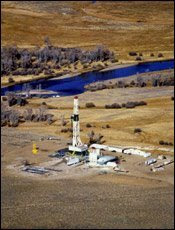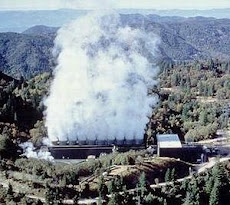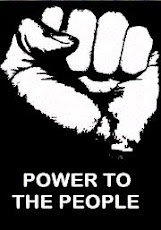National Tribal Horse Coalition Joins the United Organizations of Horse-Slaughter
~~~~~~~~~~~~~~~~~~~~~~~~~~~~~~~~~~~~~~~~~~~~~~~~~~~~~~~~~~~~~~~~~~~~~~~~~~~~
At a historic meeting in Fort Hall, Idaho, on May 13, 2009 the Northwest Tribal Horse Coalition became the National Tribal Horse Coalition and joined with the United Organizations of the Horse. The ability of tribes to manage their horse herds is severely constrained by the loss of markets for unusable horses, and they are coming together to find solutions that will benefit all tribes. The meeting was hosted by the Shoshone Bannock Fish & Game Law Enforcement Department.
Among the topics of the day were how to prevent animal rights groups from using a romantic ideal of Native Americans in their propaganda which is at exact cross purposes to the reality that tribes are facing on the ground; what to do about all of the horses that are abandoned on tribal lands; internal policies that tribes can adopt to help manage the surplus of horses; and efforts to collaborate with non-Indian organizations like the United Organizations in order to further the best interests of horses and horse people at the state and federal levels. Katherine Minthorn Good Luck has been officially designated as the Tribes’ representative to the United Organizations of the Horse’s Founding Leadership Team and will be working with us to organize efforts across the Nation.
In addition, the National Tribal Horse Coalition is drafting a resolution based on a long-standing resolution of the Oglala Sioux Tribe in support of the abilities of tribes to manage horses that they will sponsor at the National Congress of American Indians. Chuck Jacobs, a rancher and horseman from Porcupine, South Dakota was in Fort Hall representing the Oglala, and described the efforts to date to combat federal legislation that would further restrict the tribes’ ability to manage horses, as well as the measures they had taken in South Dakota such as doing away with the “open range” laws on the reservation so that horse owners could be held accountable for loose horses on roads and highways.
Jason Smith from the Warm Springs Reservation in Oregon gave an excellent presentation about their traditional management and uses of horses, how the horse population has gotten out of hand since there is no longer a viable market for horses that need to be culled from the herd to keep it at sustainable levels, and their efforts to build a processing facility on their reservation. Because of regulatory roadblocks which are going to take some time to work through, even for tribes on sovereign lands, they may try to open a rendering plant, first, and then a processing plant second. This will bring many benefits to not only their own tribe in the way of jobs for their people, a boost to the local economy, and a much needed equine management tool, but to other tribes, and non-native horse people as well.
Arlen Washines of the Yakama noted that his people are particularly looking forward to an outlet for their excess horses. Their tribal lands are overrun with some 12,000 head of feral horses which are degrading the habitat, destroying the medicinal and sacred plant species so central to their cultural ways, and severely impacting the native wildlife that they depend on, particularly the salmon which suffer because of stream bank damage, erosion and silt off of barren lands. Jim Stephenson, Big Game Biologist for the Yakama Nation Wildlife, Range and Vegetation Management Program shared a 2007 report, “Wild Horses of the Yakama Nation: a Community based Strategy to Develop Regulatory Standards and Sustainable Management Practices,” that was accomplished through a grant from the Administration for Native Americans.
Sue Wallis, from the Founding Leadership Team of the United Organizations of the Horse presented the efforts to unite the voices of horse people across the Nation. Wallis discussed the current activities in state legislatures, and in Washington D.C. to develop bill language that would support the horse industry and horse people instead of destroying our ability to manage, use, and enjoy horses. She wholeheartedly welcomed the Tribes’ to the United Organizations of the Horse.
http://www.equuivox.org/index_files/tribes.
Friday, October 16, 2009
Subscribe to:
Post Comments (Atom)



















No comments:
Post a Comment